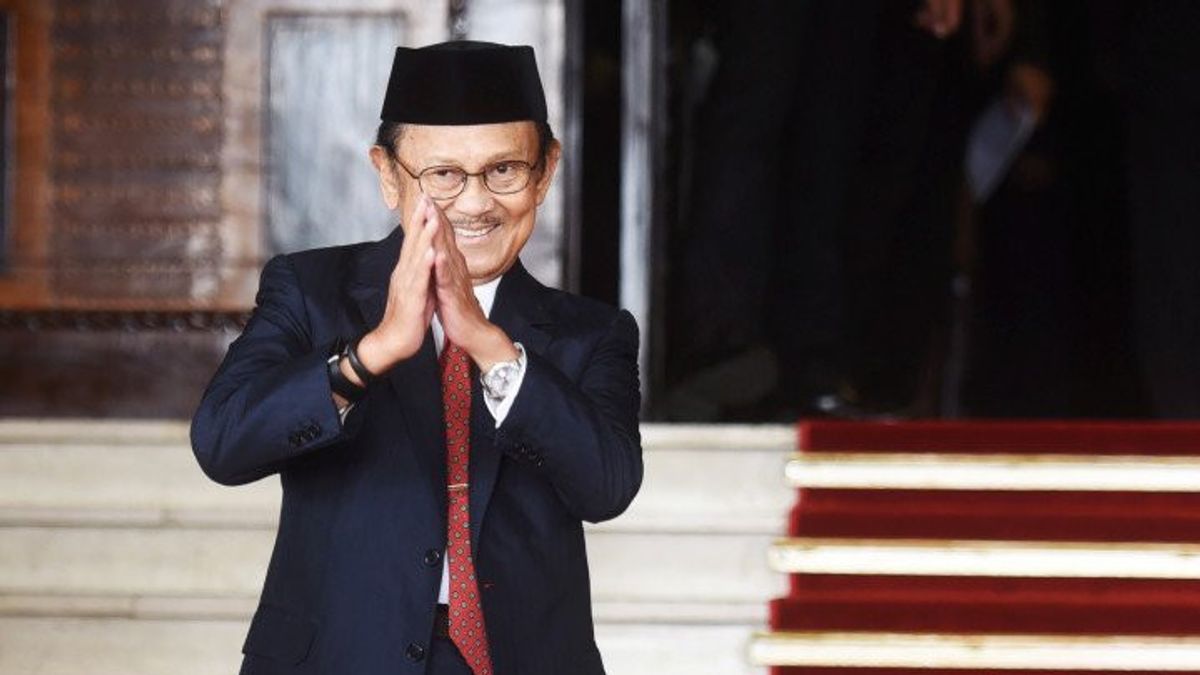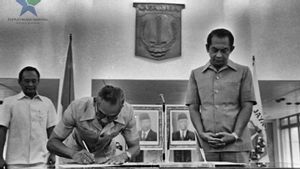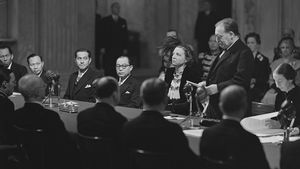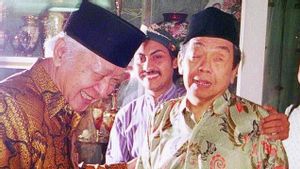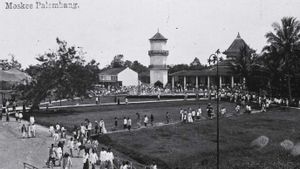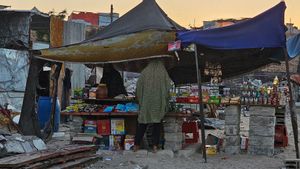JAKARTA History today, 24 years ago, June 19, 1999 Kompas Daily issued a poll regarding the level of public trust in President Bacharuddin Jusuf (BJ) Habibie's one-year leadership. As a result, the dominant people doubted Habibie's seriousness in investigating corruption and human rights violations (HAM).
Previously, all Indonesian people paid more attention to Habibie's leadership. The aerospace expert is considered capable of bringing Indonesia better. Mainly to develop Indonesian human resources.
The governments of Suharto and the New Order are full of dilemmas. No one denies that Suharto's leadership was able to bring change to Indonesia. However, none of them denied that the door to corruption in the New Order era was wide open.
This fact makes corruption affairs in the New Order era mushroom. Efforts to enrich oneself with the path of corruption have been smelled and even become commonplace. All because all elements of government are infected with corruption. From the top to the bottom level.
This activity is lasting because no effort has been made by the government to stop corruptors. Anyone who tries to perpetuate the protest will be exiled by the system. Moreover, the New Order did not hesitate to use its military power for that.
There is no gap for society to perpetuate protests. However, the economic recession changed everything. Economic recession made all Indonesian people fall to the lowest level. The owner of the panic power is not playing. The company went out of business a lot. Likewise with the emergence of unemployment everywhere.
As a result of the drop in the rupiah exchange rate, demonstrations emerged everywhere. They asked Suharto to go down. Instead of going down, Suharto actually launched a repressive movement 'violating human rights'. Violence against students led to the Trisakti Tragedy, for example. Thejian actually became the weapon of Suharto and the New Order until he stepped down.
Pak Harto's return as the number one person in the republic who was accompanied by Mr. Habibie -- the seventh vice president for 30 years, Mr. Harto, who served as president, drew pros and cons responses. Moreover, because the aroma of Cendana's relatives colored the composition of the cabinet. As a result, there were issues about the practice of collusion and nepotism among the community.
Moreover, there is a tendency for corrupt power practices. Students in various regions then responded to these conditions. They held a demonstration demanding reform and a change of the New Order regime. The students wanted Pak Harto to step down. They suspect Mr. Harto has practiced corruption, collusion and nepotism (KKN) while occupying the seat of the Republic of Indonesia I," explained Sigit H. Samsu in the book Daya Akar No End (2021).
Suharto's leadership baton was continued by Habibie in May 1998. All Indonesian people think Habibie can bring a new color to Indonesia. However, in one year of his power, Habibie is considered unable to do the demands of the people. Mainly, in upholding corruption and human rights violations.
SEE ALSO:
The narrative was further clarified by the results of a poll conducted by Kompas Daily on June 19, 1999. The results of this opinion show that the people doubt that Habibie's leadership can investigate corruption and human rights violations. The existing polls then become evidence that the replacement of the president cannot immediately smooth the wishes of the Indonesian people.
"Based on the results of the Kompas poll (19 June 1999, the public doubts the seriousness of the government BJ Habibie in investigating corruption cases (73 percent) and human rights violations (67 percent). Likewise, the public's views on the way the government eradicates KKN. Most of them assess the bad government's way (46.7 percent), normal (9.0 percent), good (35.6 percent), and do not know (8.7 percent), "said Dadang S. Anshori in the Rezim language book: Language Mirror in Power (2020).
The English, Chinese, Japanese, Arabic, and French versions are automatically generated by the AI. So there may still be inaccuracies in translating, please always see Indonesian as our main language. (system supported by DigitalSiber.id)
